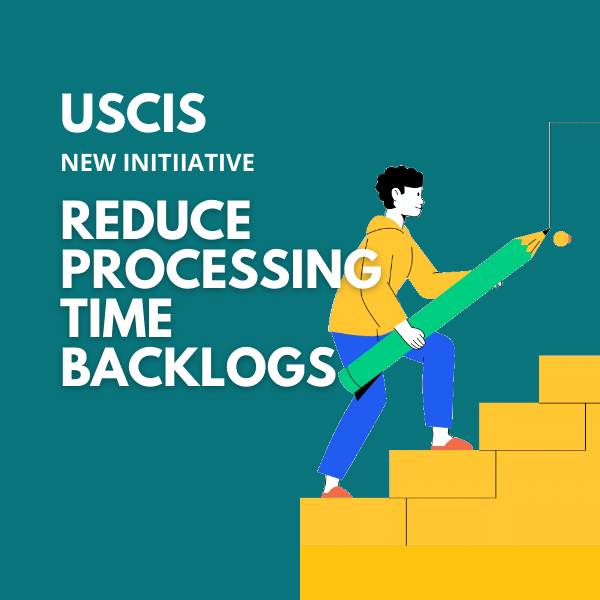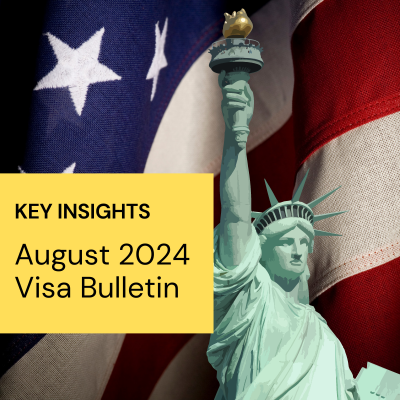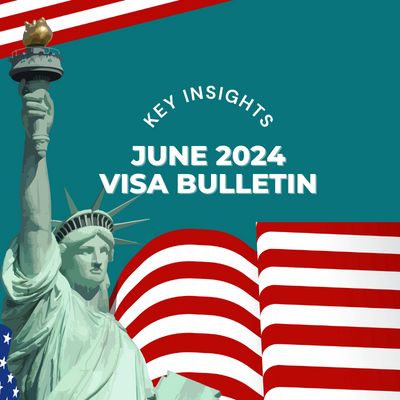USCIS had a Public Engagement Call on 18 – May – 2022
Some of the talking points from this call are as follows:
- USCIS has about 8.5 million cases pending and about 5 million are over the processing time. This is due to many reasons Covid-19, hiring freeze, work furloughs, increase in cases, closure of offices for interviews and biometrics, and decreased cases for a short time which meant decreased revenues
- Feb 2022 the backlog has started to decrease slightly. The backlog caseload was 2.5 million in 2019 and it increased to 1 million in 2020.
- The decrease in backlog is due to the fact that the Hiring freeze has been lifted, USCIS has reused biometrics for 2 million applications, USCIS has started Video interviews, and about 160,000 mostly naturalization cases have been interviewed in this way.
- USCIS’s goal is to decrease the 2023-Cycle time reduction by 2 weeks to 6 months depending on the type of application. For example, for I-485 and N-400 cases it will be 6 months
- Premium Processing will be expanded and implementation will start soon in a phased manner, starting with I-140 cases that were previously not eligible for Premium Processing and then to I-539 and I-765 cases.
- USCIS priorities for this year
Improve Fiscal strength
The USCIS has said that $275 million for 2022 backlog reduction was approved by Congress, and for 2023 additional funding was requested, Otherwise, the application fee has to be increased
Increasing hiring
Only 82% of USCIS is staffed, USCIS is now filling those positions
Improving Efficiency in adjudication and Increasing the Moral of officers were also stated as a priority
Some of the FAQs during the session were as follows:
Q1: Will the unused GC numbers be wasted this year as well?
Answer: USCIS has responded that it’s their top priority to utilize all the GC numbers as possible, Family-based unused GC numbers from last year will move to employment-based for the next year. Last year only 175,000 numbers were used. This year there are 280,000 GC numbers that need to be used before 9/30. USCIS has said that they do not have sufficient inventory to use up the GC numbers for EB-1 and EB-2 categories, so interfiling or filing under those categories is strongly encouraged. EB-2 is being advanced for this reason because of surplus numbers. USCIS has recommended submitting medicals at the time of filing for the I-485 so that time can be saved.
Q2: Will the Processing times for K-1, and I-129F be improved?
Answer: In 2023 the processing time of 6 months will be achieved. 10.5 months or more is the current processing time
Q3: Will New cycle time goals for cases be published?
Answer: Yes, USCIS processing time goals will be on the website, also USCIS has made some changes to its website so that the current processing times are more specific to the forms and are described in percentiles and a lot more background information is given, USCIS hopes this will make the process more transparent.
Q4: NSC to NBC how are case transfers being prioritized?
Answer: I-140 and I-485 cases are being sent to NBC and I-485’s are being transferred to the field offices from the service center. This is new as I-485’s were previously adjudicated by the service centers.
Q5: What is the progress on the cases received for Interfiling based on underlying basis?
Answer: It’s working as of 5/11/2022 they received 11,700 requests at the new address, in 5,000 cases the requests were approved and the decision was sent to service centers so that files can be pulled for final adjudication. The approval is sent via electronic means. The other cases are also being rapidly worked on.
Q6: I-765 PP and other when will this be implemented?
Answer: USCIS did not respond with a timeline
Q7: Are Interviews being reduced?
Answer: Yes for family-based, employment-based, based on studies on past case data USCIS is moving towards a more risk-based process, if not required by law, they will look into the case to see if an interview is required.
USCIS is not transparent in the communication of the process or timelines. Some cases get approved quickly others do not therefore people have lost faith in the USCIS, any efforts to correct this?
USCIS says they are trying to be more transparent with the processing times and process but did not address specifically why cases are not adjudicated based on dates received and why some cases get processed quicker than others.






